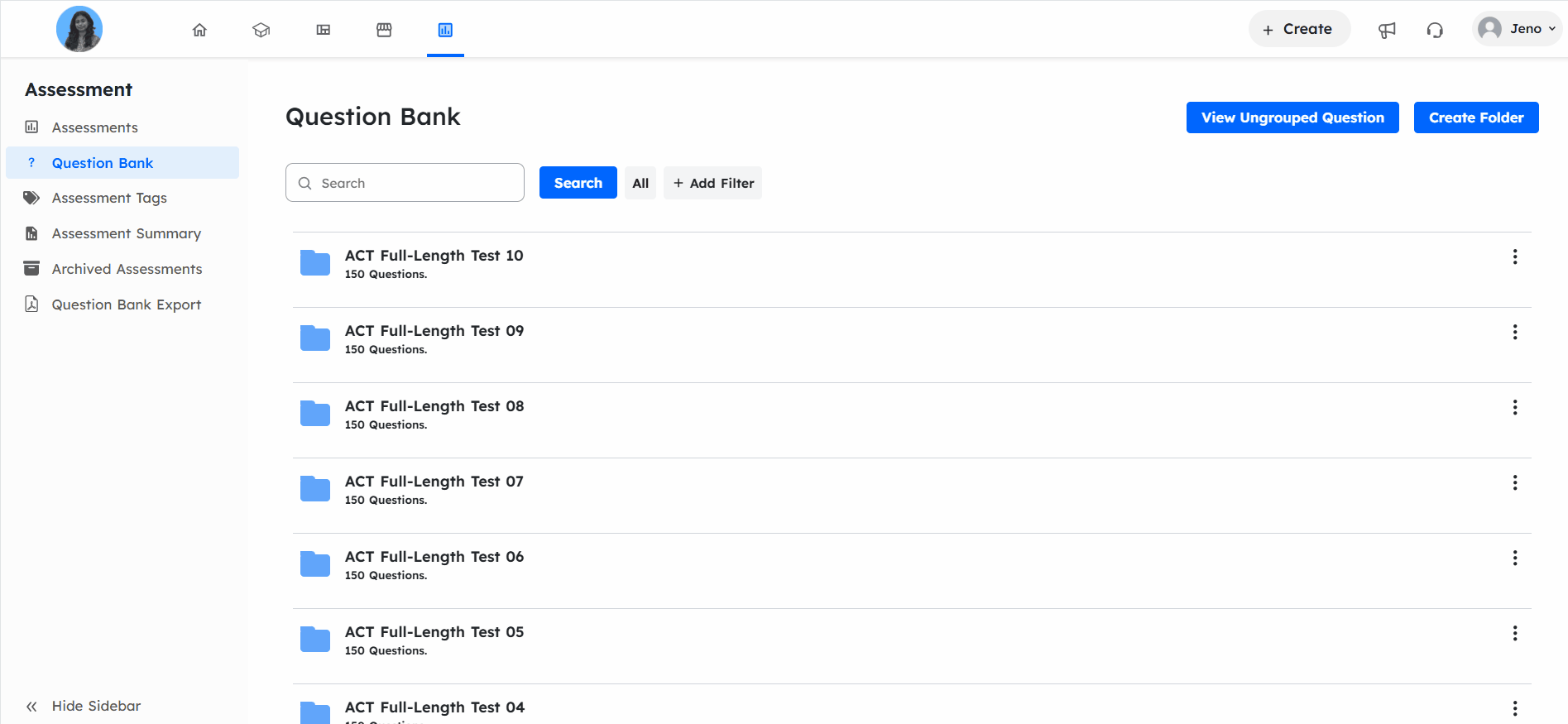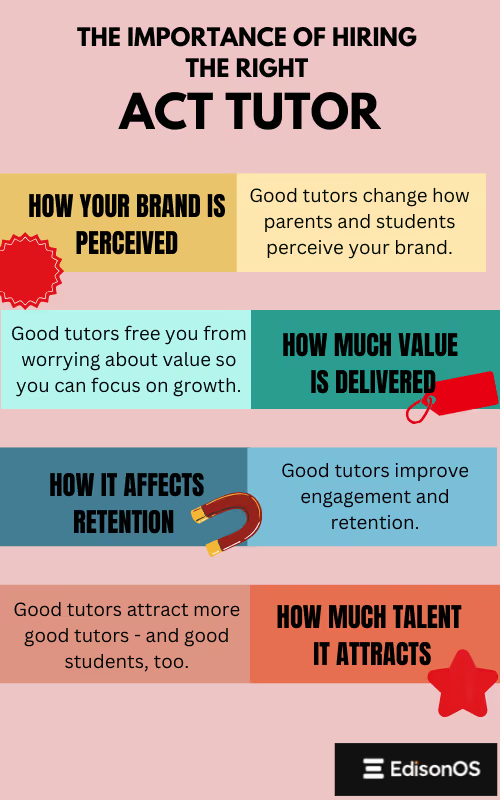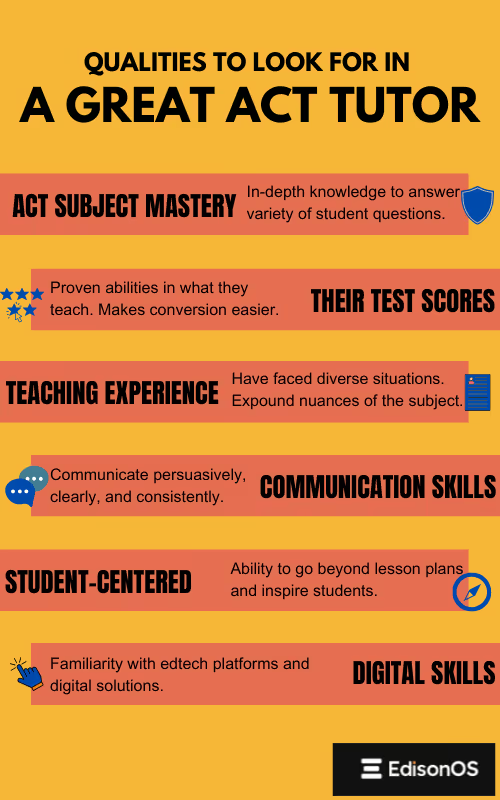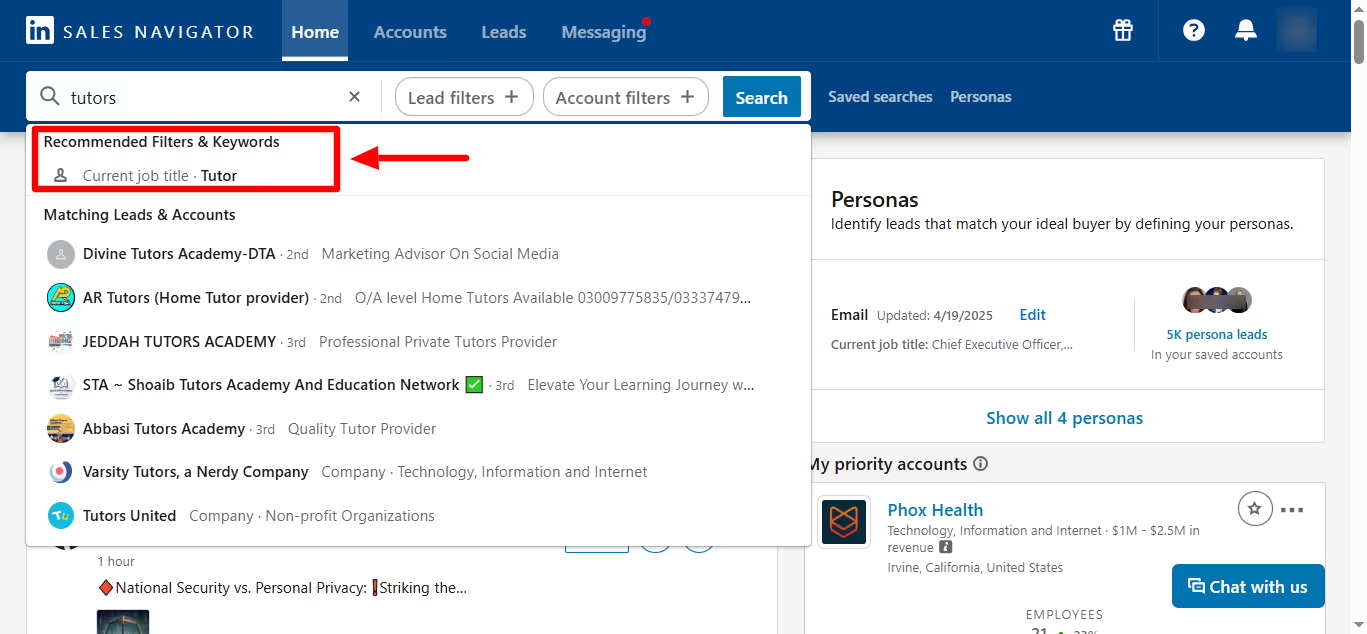




Key Takeaways
- Identify key traits of top-performing ACT tutors before starting your hiring process.
- Use structured vetting to ensure tutors align with your brand and teaching goals.
- Retain quality tutors by fostering ownership, offering support, and using digital tools effectively.
As an ACT prep firm owner, hiring the best ACT tutors for your test prep firm and attracting students for ACT tutoring are typically your two principal challenges. Even a small team of ACT tutors who are highly competent and inspiring can drastically change the results you can showcase.
Remember how the future super-performer Chris Gardner in The Pursuit of Happyness happens to land an internship at the firm by sheer coincidence? Well, in real life, a great hire is mostly a result of powerful hiring practices and processes—and rarely due to serendipity.
In this post, we will discuss how to hire the best ACT tutors for your prep firm. We will also look at the qualities of good tutors and show you where to find the best ones. We’ll discuss the vetting process as well.
We’ll also compare freelance vs in-house tutors, look at some of the best ways of retaining great people, and answer some frequently asked questions.
Why Hiring The Right Act Tutors Is Crucial For Your Brand

Some reasons behind the importance of hiring the right ACT tutors, like a higher success ratio of students, are quite obvious.
Other reasons are equally important, if not as obvious.
1. Boosting Perception Through Brand Results
With a great tutor, the improvement in student outcomes transforms the way potential students and parents perceive your brand. Your tutoring service would be considered one that intends to deliver results.
2. Focus on Growth, Not Worries
Secondly, hiring great tutors means you have to worry less about whether students are getting value. Instead, you can concentrate on reaching out to more students and building your tutoring brand.
3. Enhancing Engagement and Retention
Thirdly, you’ll see a marked improvement in student engagement and retention. Great tutors help students crack the puzzle of how to score high on the ACT and inspire confidence in subsequent students.
4. Attracting Top Talent Through Results
And finally, talent attracts talent. When your students bring in better results, you’ll find it easier to attract both better students and better tutors. That will make your marketing and building a tutoring team easier.
6 Qualities To Look For In Top ACT Tutors
Before you sit down to interview your first tutor, you want to be clear about what qualities you want them to bring to the table. Here are the six major things to look for:

1. ACT Subject Mastery
Students today have access to lots of ACT test prep literature. As a result, they come with a lot of information. If your tutor isn’t skilled in their subject, the student could stump the tutor with just a few questions.
2. Test Score Background
It is no longer the age of tutors who haven’t cracked the test themselves. Today, the test scores of your tutors is one of the first things your prospective students notice. Great scores by your tutors make conversion easier, so before you hire ACT tutors make sure to check their test scores.
3. Teaching Experience
The longer time ACT tutors have spent tutoring, the more diverse situations they’ve faced. This would have prepared them to understand the nuances of tutoring.
In addition to that, teaching experience gives tutors a stronger command over the subject they teach, the skills to expound the finer aspects of each topic, and the ability to quickly spot a student’s weak areas.
Explore tutors’ openness to mold themselves into your pedagogical approach. Their experience shouldn’t have made them too rigid to accept any novel ideas.
4. Communication Skills
If a candidate comes with little to no prior teaching experience, how can you be sure they’d still make a great ACT tutor? Qualifications certainly count, but that’s not a direct reflection of what they can do in a class. That’s why communication skills are important.
As students proceed to higher classes, the importance of communication increases because interactions increasingly grow beyond fixed rules set in textbooks. So, with ACT tutoring, communication is an invaluable skill.
5. Adaptability and Student-Centered Mindset
No matter how detailed your lesson plans are, a part of the tutoring session will invariably turn out differently. That’s because the spontaneous engagement by students can never be predicted, and your tutors need to be adaptive to those changes.
The best tutors for ACT prep do not just work as per the lesson plan; they inspire. By having a student-centered mindset, your ACT tutor should be able to empathize and see things from the student’s POV.
6. Familiarity with Digital Tools and Edtech Platforms
One of the key skills to look for in ACT tutors today is their familiarity with digital tools.
Are they conversant with edtech platforms? Do they know how to best leverage modern edtech platforms? Are they good at exploiting digital solutions for students? Do they know how ACT scoring works?
It is important to evaluate questions like this when you are looking to hire ACT tutors. The SAT has gone fully digital, while the ACT offers digital as well as paper-and-pencil modules as alternatives. In such a scenario, having a tutor who is thoroughly familiar with edtech capabilities is very important.
Where to Find ACT Tutor Candidates
Paradoxically, with more hiring options out there, hiring has not become any easier. Here are the most important places to look for when looking to recruit ACT tutors:
1. Tutoring marketplaces
Some tutors are tied up exclusively to a few brands (but that doesn’t mean you can’t approach them) while others are freelancers. Most marketplaces, such as Wyzant, Tutor.com, and Skooli will have some reviews left by past students, which makes your vetting process easier.
2. LinkedIn
Professional networking sites like LinkedIn and niche job boards, such as FlexJobs and EdTech Jobs, are two more places from where you can start building a tutoring team. You can also check their previous experience, qualifications, and other details.
Many of these sites have some or the other form of a premium module (Sales Navigator, in the case of LinkedIn) where you can easily set up filters, extract contact details, and get in touch for the next steps.

3. College alumni networks
College alumni networks, such as Wake Forest University, North Carolina, University of California, Berkeley, and Wabash College, Indiana, will only be too pleased to connect you with alumni already tutoring or keen to enter tutoring. The only limitation is that not all alumni networks are well-updated or extremely organized, so be prepared to do some extra work.
4. Reddit and teaching forums
Reddit has nearly all the information we are looking for, so why not use it to find help with hiring ACT tutors? There are sections—called subreddits—dedicated to hiring tutors, so make the most of it. Some examples are r/ACT, r/SATACTprep, and r/Tutors.
Teaching forums, such as The Well-Trained Mind Community, are another great place to check out. Because they are a specialized place, you’ll have no trouble explaining what exactly you’re looking for.
5. Your own network
Don’t forget the source right in front of you—your own teachers. Seek referrals from tutors within your network and also from other educators. This is an informal network, but a highly effective one. Whether you have a policy of offering a referral fee is a separate matter, but this is one of the most under-valued resources for hiring.
The Vetting Process: What Will You Ask, Assess, and Accept?
A 2023 World Bank Report on teachers notes that to make a teaching policy work, goals or changes should be clear, doable, and rewarding for teachers. Pretty much the same applies to your ACT tutors—have clear hiring goals and accept only the right-fit tutors. Here’s how:
Score Screening
As mentioned earlier, you must hire tutors with good ACT scores, preferably on the digital ACT. While you may not always get tutors with a perfect 36, you’ll want to place the cutoff at 30, which roughly corresponds to 93 percentiles. However, tutors with a score of 32 and above would be even better.
Resume Screening
A resume that is full of short stints lasting between three months and a year could indicate a lack of stability. Similarly, someone who aspires to be a tutor but has worked in five different industries in the past four years may not be a great fit. Look for someone who is steady, solid, and reliable.
Reference Checks
If something on the CV sounds too good to be true, it probably is. Most tutors carry honest CVs, and while the digital world has made it difficult to lie blatantly, you never know. Remember, there’s a legal business contract between your test prep company and your students. You don’t want to be careless in checking references and later get embroiled in some legal tangle you could have prevented.
Cultural Fit With Your Prep Firm
Look for a cultural fit. If your test-prep isn’t too old, perhaps an experienced candidate will bring in robust teaching processes. On the other hand, if your test prep firm has been running for quite some time, you want to bring in someone who’d quickly fit in, rather than struggle with, your processes.
Sample Lessons or Teaching Demos
The proof is in the pudding, right? No amount of interviews can fully reveal the teaching abilities of a tutor as a demo class. If you’re satisfied with the early interactions, move on to the demo class quickly.
During the demo sessions, observe how the tutor explains topics, answers questions, or uncovers smart short-cuts. Are they organized? Are they clear? Are they engaging? Do they instill confidence?
Trial Period
If you’ve followed hiring best practices, a 3-month trial period will have no surprises, and you’ll continue seeing the same qualities that had impressed you in the earlier stages. In rare cases, you’ll find there are some self-discipline issues.
For instance, the tutor turns up late or drags the tutoring session without achieving the day’s teaching goals. That’s the time you’ll need to act fast. Sit down with the tutor and make things clear as to where you draw the line.
And finally, you can check how they can explore available resources. At Edison, we have several tools for tutors. Have them use our BYOT (Build Your Own Test) tool, and see the kind of tests they can design. That will tell you a lot about their overall understanding of the test.
In-House vs. Freelance Tutors: Pros and Cons
While hiring tutors, sometimes you have to choose between hiring freelance tutors or building a team of in-house tutors. The following table will help you decide better.
Maximize Success by the Best Tutors for ACT Prep
Hiring ACT tutors impacts your tutoring business like little else can. Begin with a clarity on what you should be looking for and then lay down the vetting process Once you follow hiring best practices, you’ll generally be able to get really good tutors.
In the age of digital tests, an ACT tutor is only as good as the digital tools you provide them with for student success.
At Edison, we have several tools that will aid your tutors in transforming the results your students can achieve. Why not book a demo and explore how you can turn your good tutors into a super-star tutoring team?
Frequently asked questions
An ACT tutor should have section-specific expertise. For instance, a math tutor with a math degree is ideal. However, recent high ACT scores and proven tutoring experience often speak louder than formal qualifications, especially for seasoned tutors. Oftentimes, great ACT scores and past tutoring experience can outweigh academic qualifications.
Hiring full-time or freelance ACT tutors depends on your business model and your priorities. Freelance tutors offer flexibility and lower fixed costs, making them ideal for smaller or growing operations. Full-time tutors, on the other hand, provide consistency and are better suited for established businesses focused on scaling and long-term growth.
You can evaluate a tutor’s effectiveness in three ways. First, check their own ACT scores. Two, put them through a demo class. And three, evaluate whether they’ll fit your tutoring business culturally. The last one is one of the most undervalued pieces of advice
The pay for ACT tutors varies a great deal, depending upon factors like experience, results they can achieve, the level of commitment to your tutoring firm, whether it’s in-person tutoring or online, and more. As a thumb rule, US$35 per hour is considered as a starting point. However, a good tutor would be available upwards of US$ 100/hour.
Start scaling your tutoring team by strengthening your hiring and training processes. Develop a standardized teaching framework with clear lesson plans and score benchmarks. Use student feedback to guide tutor development. Finally, leverage digital tools for both oversight and performance tracking.

Tutors Edge by EdisonOS
in our newsletter, curated to help tutors stay ahead!
Tutors Edge by EdisonOS
Get Exclusive test insights and updates in our newsletter, curated to help tutors stay ahead!
Recommended Reads
Recommended Podcasts






.png)




.png)
.webp)
